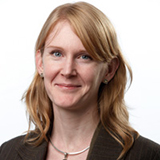 Media reports that chip away at the confidence the public has in doctors occur regrettably often. A recent case in Virginia, USA, in which a patient recorded offensive comments made about him by the medical team during a colonoscopy, will make depressing reading for all those who work hard to earn and maintain the trust of patients.
Media reports that chip away at the confidence the public has in doctors occur regrettably often. A recent case in Virginia, USA, in which a patient recorded offensive comments made about him by the medical team during a colonoscopy, will make depressing reading for all those who work hard to earn and maintain the trust of patients.
Last week the patient succeeded in his claim for defamation and medical negligence against the anaesthetist who had mocked and insulted him during the procedure, and was awarded $500,000 in damages by a jury. The gastroenterologist, whose comments had been milder than those of the anaesthetist, was released from the case on the first day of the trial. Legally he may have had no case to answer, but morally and professionally his role in the matter still raises questions, as he helped to create an environment in which inappropriate comments about patients were accepted and even encouraged.
Clearly the medical team did not expect that their conversation would become public, and the case is a reminder to doctors that they can be recorded by patients at any time. In this particular case the patient said the recording was unintentional, but the risk of covert recording is rising with advances in technology and the increased prevalence of smartphones. Encouraging patients to be open about their wish to record consultations is one way to avoid the secrecy and distrust that comes with covert recordings.
But even if the comments made by the anaesthetist had never been recorded or made public, they would still not be excusable. Patients need to be able to trust their doctors, and this is seldom truer than during sedation or anaesthesia. They entrust their wellbeing and dignity to those around them in the operating theatre, and must be able to expect that their bodies will be treated with nothing but respect. Derogatory comments are never acceptable, even when the patient is asleep, and should not be tolerated.
Unfortunately, some of the hardest people to stand up to are those who make these types of remarks. Their confidence, aggression, or popularity can be some of the factors that make it unappealing to be the lone voice against them. But this is the key: these doctors are in the minority and together their colleagues should be able to take a stand. If everyone consistently shows their disapproval—either by actively objecting, politely asking them to be quiet, or even just by meeting their comments with stony silence—it will be effective in sending the message that their behaviour is unacceptable and unwelcome.
Marika Davies is a freelance journalist and medicolegal adviser for the Medical Protection Society.
Competing interests: “I have read and understood BMJ policy on declaration of interests and declare the following interests: I am employed as a medicolegal adviser by the Medical Protection Society.”